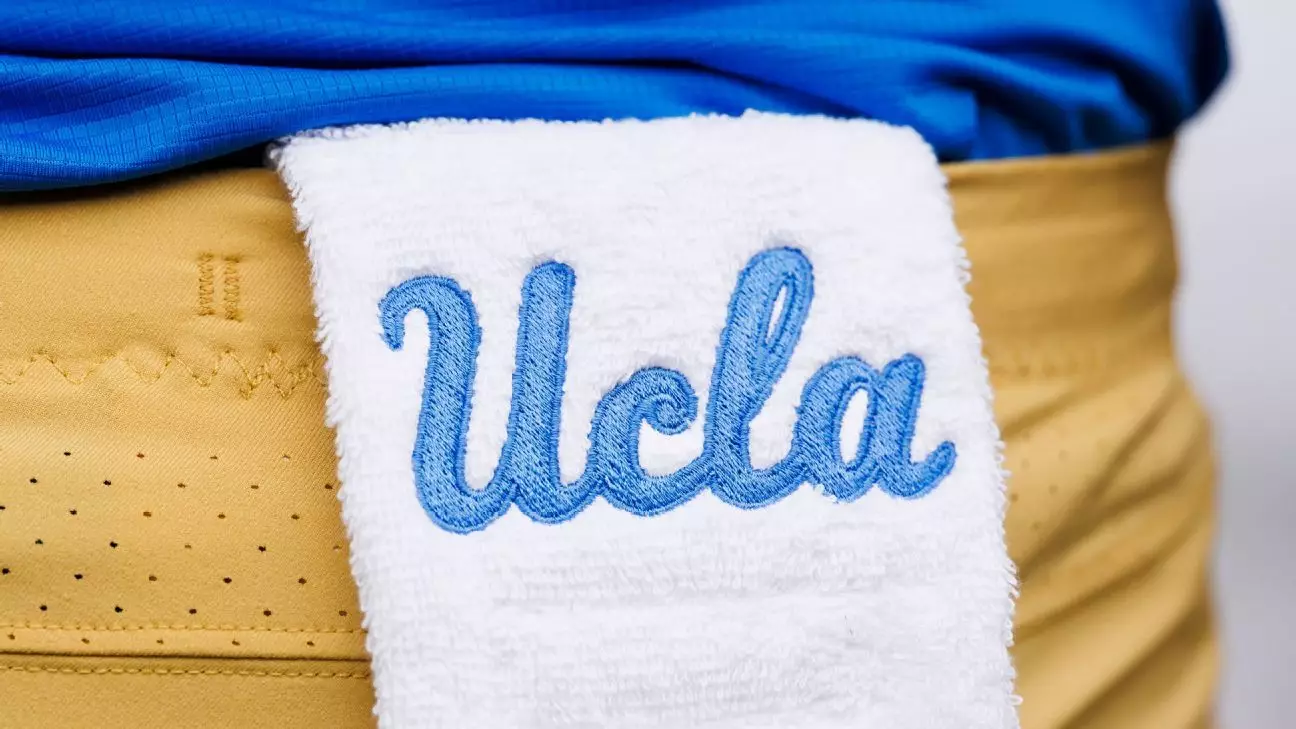The world of college football is frequently characterized by shifting loyalties and fierce competition, and the recent news of Madden Iamaleava’s transfer to UCLA alongside his older brother, Nico, epitomizes this phenomenon. Not only does this reestablish a enticing narrative about familial support in a high-pressure environment, but it also raises serious questions about the nature of commitment in college athletics. Madden’s decision—after a brief stint at Arkansas—sends ripples through the recruiting landscape, suggesting that college football has become less about loyalty and more about strategic positioning.
A Wasted Opportunity at Arkansas
Many may wonder why Madden chose to depart from the Razorbacks after such a short time. Initially, his commitment to Arkansas was seen as a major victory for Coach Sam Pittman, but it raises the uncomfortable issue of transfer regret. His transfer comes just a day after Nico signed with UCLA after parting ways with Tennessee, suggesting that pre-existing family ties may override rational decision-making. Rather than growing with an established program, Madden appears to be opting for a comfort zone—and the stakes are higher than just personal happiness. This is about carving a career in a sport that can be unforgiving.
While Madden was ranked as ESPN’s No. 145 overall recruit and the No. 12 pocket passer in the 2025 class, he didn’t play during his senior season due to ineligibility, leaving many to question whether he has the chops to compete at a high level. Transferring to UCLA, which has a history of quarterback success, can be seen as both a smart and risky move. Will Madden rise to the occasion and claim a starting position, or will his past hold him back in the competitive landscape of college football?
The Sense of Entitlement in Transfer Culture
Madden’s transfer is emblematic of a larger cultural shift within college athletics—a trend towards immediate gratification and a sense of entitlement among young athletes. While the NCAA transfer portal opens doors for many, it also allows players to abandon their commitments at a moment’s notice. This raises ethical questions. Should athletes be allowed to redefine their paths so frequently, or does this cheapen their initial commitments?
In addition, the Iamaleava brothers’ decision to unite at UCLA prompts discussions on the implications for other players. When two high-profile recruits leave one program for another, it sends a message that loyalty is a fleeting concept. For programs like Arkansas, such departures can be devastating, as they must constantly recalibrate their strategies in an unpredictable environment.
A Liberal Perspective on Future Directions
From a center-wing liberal viewpoint, the dynamics surrounding college transfers should call for more nuanced conversations about accountability and the well-being of young athletes. While empowering students to make choices that best serve them professionally is essential, there should also be discussions on the implications of these choices on the integrity of college sports.
Athletes should aim for stability in their commitments, promoting the idea that growth comes from enduring challenges rather than fleeing them. By encouraging a sense of responsibility alongside the freedom of choice, we can foster an environment where college football nurtures not just athletic talents, but also genuine character development. Allowing players to navigate their athletic careers without ever facing the consequences of their decisions could steer college football toward a future devoid of respect for one’s team and commitments, risking the very foundation of sportsmanship.


Leave a Reply